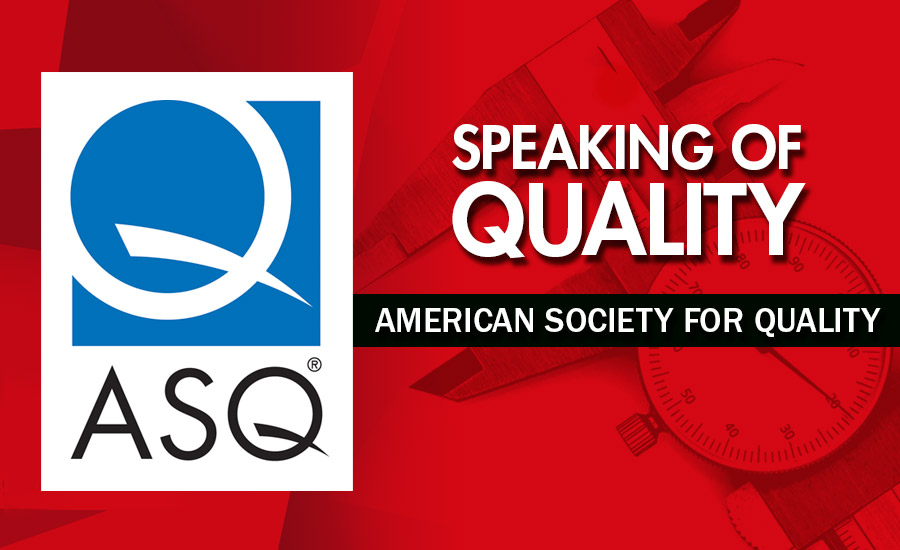The quality profession has existed for nearly three-quarters of a century. In 1946, quality professionals rallied together to create the American Society for Quality Control. Throughout the association’s 72 years, the profession has evolved as roles and responsibilities have changed and expanded. Quality professionals work on organizational excellence projects, the supply chain, innovation, and many other areas. With the expanded role, the quality professional has needed—and will continue to need—to refresh not only the traditional skills but fill the toolbox with new skills.
Company executives have come to realize quality is everyone’s job. ASQ research has been pointing this out since the beginning of this century, through the Future of Quality, Global State of Quality and Culture of Quality reports. How quality is everyone’s job can be different in each organization, depending on culture and other factors. But, to many companies, it’s much more than simply wearing another hat on the job.
“It’s a lot more collaborative than it used to be,” states Laura Methfessel in an ASQ TV interview. “When I started at my company (2007), quality was still seen as (one) of the bad guys. But since [then], and since I’ve been able to train through ASQ, I’ve been able to take all those skills and bring them to our corporate culture. And now we have cross-functional groups. We are helping to promote quality basically from the bottom up and getting all our employees involved. And that’s how I see quality work going throughout the whole company, making everything work better.”
In discussing an improving an organization’s culture, Methfessel also makes an important point for the individual. Quality professionals need to be on the lookout for opportunities to broaden their skillset. What those skills are can depend on the industry and specific role. For many years, QP’s “The Career Corner” asked quality professionals to offer readers tips and thoughts regarding the changing landscape of a career in quality. In a 2014 column, Ray Harkins wrote, “A quality professional’s job is technical. Auditing, inspection, calibration and testing involve technical skills that are fundamental to those positions.” Continuing to strengthen technical knowledge in your area of expertise—whether through certification or coursework—is essential to advance your career but Harkins also suggested thinking outside the toolbox. “Regardless of your role in the quality profession, complementary skills, especially computer skills, increase your value to your current employer and give you an edge in the job market.” (http://asq.org/quality-progress/2014/12/career-corner/square-pegs-round-holes.html)
As you examine your future as a quality professional, remember two important facts:
- Quality reaches the company’s bottom-line
- Quality pros make a difference in the world
In an article for FORBES, Adam Goldstein, president, Royal Caribbean Cruises, said, “Sustained quality drives premium revenue generation. Additionally, quality enables the most powerful partnerships, which can increase profitability.” This will certainly make your executives and/or clients happy. You must remember though, whatever you are doing, YOU need to be happy. With that sentiment in mind, QP Career Corner author, Diane G. Kulisek, stated, “…every action a quality professional takes to improve one small part of the world has the potential to improve the quality of life for the whole world.” (http://asq.org/quality-progress/2010/03/career-corner/right-wrong-good-bad-or-indifferent.html). How many professionals in other fields could say the same thing? Have a prosperous—and happy—New Year.
A career in Quality: New Quality Methods and Job Satisfaction
The annual Salary Survey in the December 2018 issue of Quality Progress showed a modest uptick in average salary for U.S. quality professionals, from $92,742 to $94,561. More importantly, the lead-off analysis in the survey report examined quality professionals who participate in deploying new quality methods and how the success or failure of these implementations can influence job satisfaction. The 2018 QP survey found:
Where an implementation was deemed a success, it also had, on average, a positive effect on the respondent’s job satisfaction. This is especially true for Six Sigma implementations: Among those who judged their organization’s Six Sigma implementation successful, 87.2% said it had a positive effect on their job satisfaction.
When an organization successfully implements a quality system—any quality system—it has a positive effect on its employees’ satisfaction.
It’s clear that—based on survey respondents’ comments—achieving success in both quality progress and employee satisfaction requires a firm commitment from top management.
It’s clear that—based on survey respondents’ comments—achieving success in both quality progress and employee satisfaction requires a firm commitment from top management.
To read the Quality Progress Salary Survey results, visit asq.org/qualityprogress/index.html.









